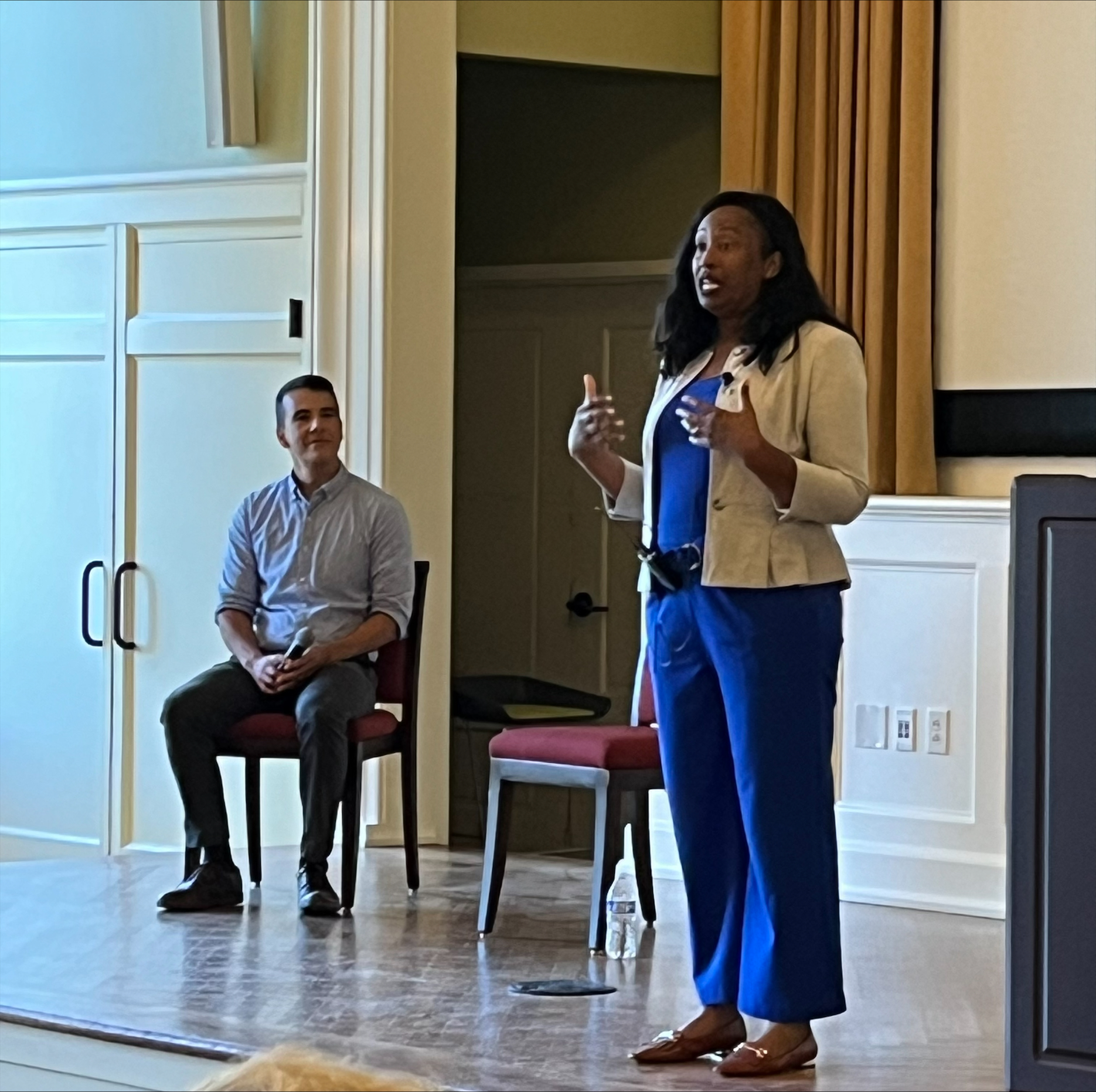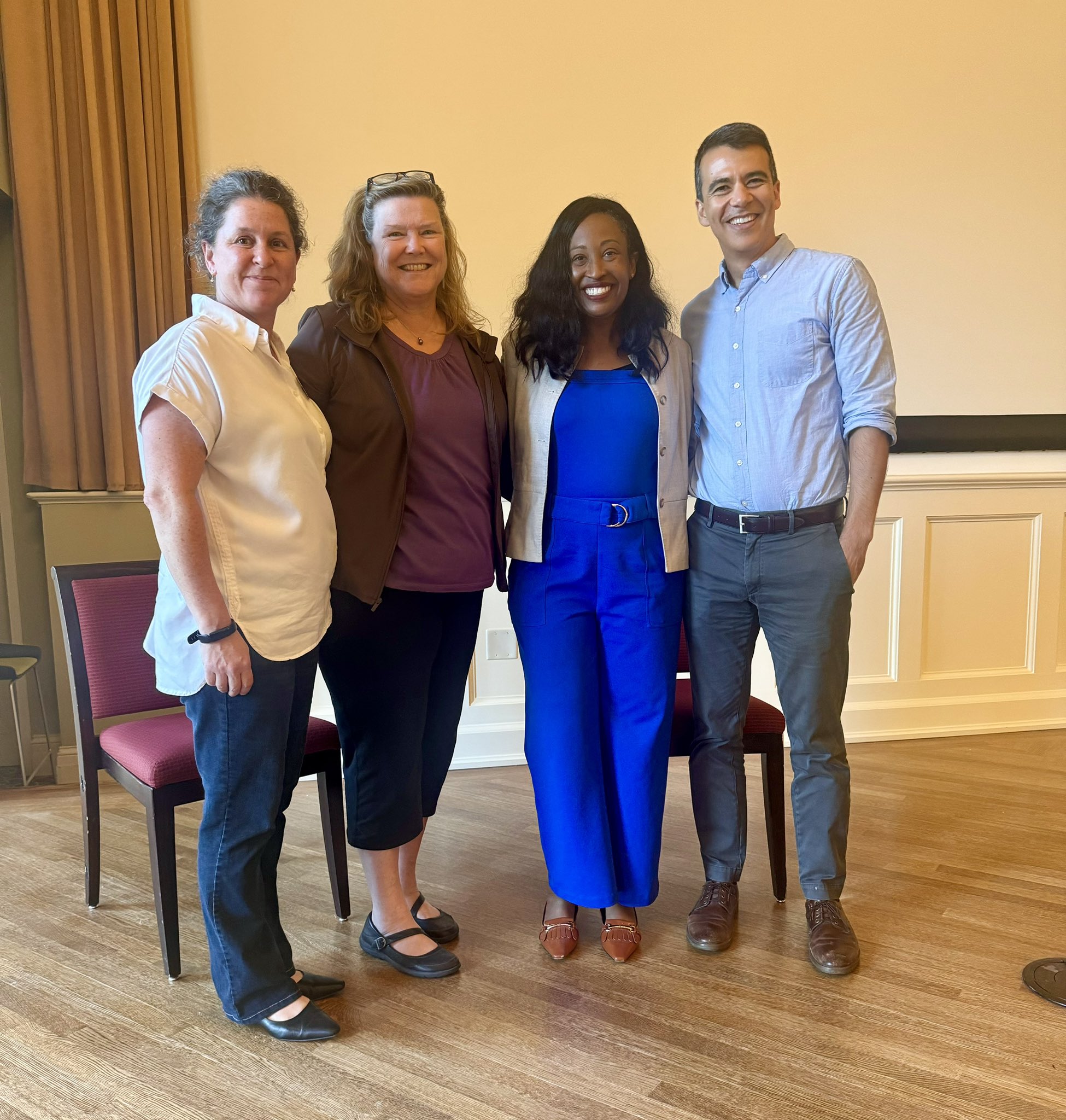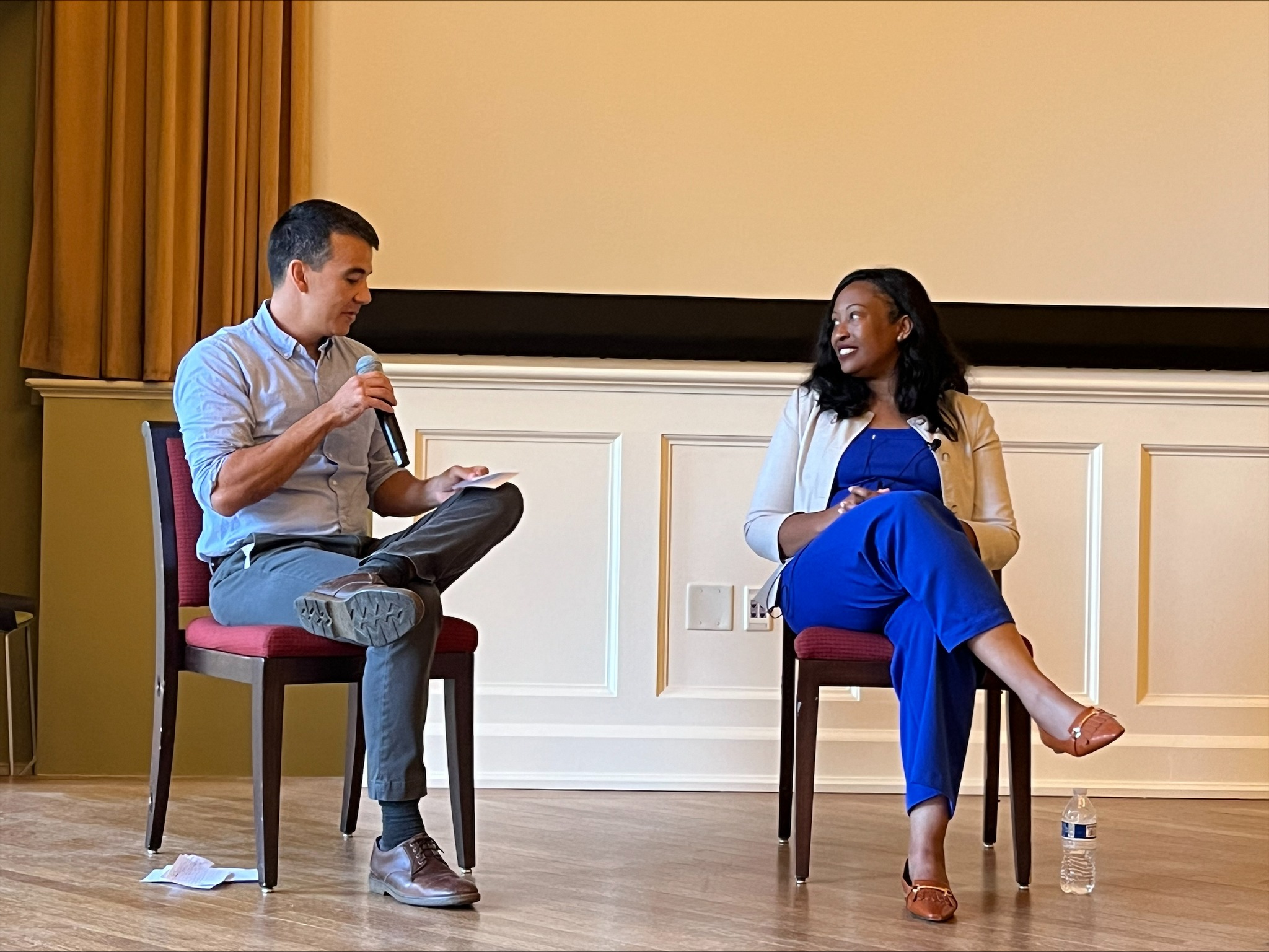"Start Where You Are": A Talk with Leslie Mehta
 On September 11th, the Schroeder Center for Health Policy and the Public Policy Program hosted Leslie Mehta, the Democratic nominee for Virginia's 1st Congressional District. Moderated by Dr. Elyas Bakhtiari, associate professor of sociology and Director of the Schroeder Center for Health Policy, Mehta briefly summarized her career before taking questions from the audience in a Q&A.
On September 11th, the Schroeder Center for Health Policy and the Public Policy Program hosted Leslie Mehta, the Democratic nominee for Virginia's 1st Congressional District. Moderated by Dr. Elyas Bakhtiari, associate professor of sociology and Director of the Schroeder Center for Health Policy, Mehta briefly summarized her career before taking questions from the audience in a Q&A.
Showcasing her ability to balance the personal and professional, Mehta drew from her experience as the ACLU Legal Director for Virginia, a mother to a child with Rett Syndrome, and an aspiring political candidate to address sensitive topics. Though audience questions for Mehta varied, they followed three general themes: her work at the ACLU, her sudden pivot to rare disease advocacy, and her future political goals.
When reflecting on the ACLU, Mehta emphasized their commitment to the Constitution. Serving as Legal Director, Mehta advocated for a variety of defendants including white supremacists petitioning to protest in front of Confederate statues in Charlottesville. Mehta, hesitant to condone hate speech, cited the Constitution when defending the groups' right to peacefully protest. Her work at the ACLU led former Governor Northam to appoint her to the Commission to Examine Racial Inequity in Virginia Law.
Looking back, Mehta acknowledged "things can hurt personally" when confronting controversy. However, Mehta also pointed out a professional responsibility to step back and reframe sensitive issues in a meaningful way. Although she faced inconvenient truths at the ACLU, the job would inform how Mehta approached advocacy and politics later in her career. 
In 2017, Mehta left the ACLU after her daughter, Brooke, was diagnosed with Rett Syndrome. As a mother whose daughter was denied Medicaid twice, Mehta felt compelled to advocate for rare diseases like Rett Syndrome. Referring to children with Rett Syndrome as Brooke's brothers and sisters, Mehta sat on the International Rett Syndrome Foundation before being appointed to the Rare Disease Council by Governor Glenn Youngkin. Mehta's advocacy contributed to Abigail Spanberger (D-VA) sponsoring a rare disease bill and laid groundwork for her current campaign.
Reflecting on her advocacy, Mehta offered two insights for the audience: First, when asked about working with Democratic and Republican governors, Mehta challenged partisanship stating, "you work with the people who you work with to get things done for the people who need things done." To Mehta, successful advocacy arises from fearless non-partisanship. Second, when advising a student interested in advocacy, Mehta said "in terms of advocacy, start where you are." Citing her unawareness when Brooke was diagnosed, Mehta acknowledged how quickly she became a part of the advocacy community.
After Brooke passed away in 2021, Mehta contemplated running for office. Having advocated for a rare disease bill that Republican incumbent, Rob Wittman, refused to sign, Mehta worked with Abigail Spanberger (D-VA) to campaign against Wittman. Although new to the politics, Mehta noted her time as an ACLU Director and advocate inform how she approaches policy. When asked, Mehta citing the Constitution described plans to reverse book bans in school libraries, codify Roe v. Wade, expand Medicaid and Medicare, and pass a rare disease bill that expands treatment options.
 Though Mehta hopes to debate Rob Wittman to address issues in healthcare and education, there is currently no schedule date. Having worked on controversial issues at the ACLU, Mehta emphasized the importance of difficult conversations across the aisle.
Though Mehta hopes to debate Rob Wittman to address issues in healthcare and education, there is currently no schedule date. Having worked on controversial issues at the ACLU, Mehta emphasized the importance of difficult conversations across the aisle.
When advising students interested in policy, Mehta encouraged the audience to remember that work continues regardless of November 5th's outcome. Healthcare, education, and constitutional rights are non-partisan issues that require creative and prudent analyses. Whether advocacy or politics, Mehta encouraged students to use their experience and skills to build their knowledge and influence.
For students interested in health policy and advocacy, the Schroeder Center for Health Policy will host Dr. Daniel Skinner, Professor of Health Policy at Ohio University, on October 25th from 2-3:30om in the Sadler Center (Tidewater B). Dr. Skinner, an expert on the Affordable Care Act and the politics of healthcare, will deliver a talk titled "Urban Public Health and the Paradox of Medically Overserved Communities."















